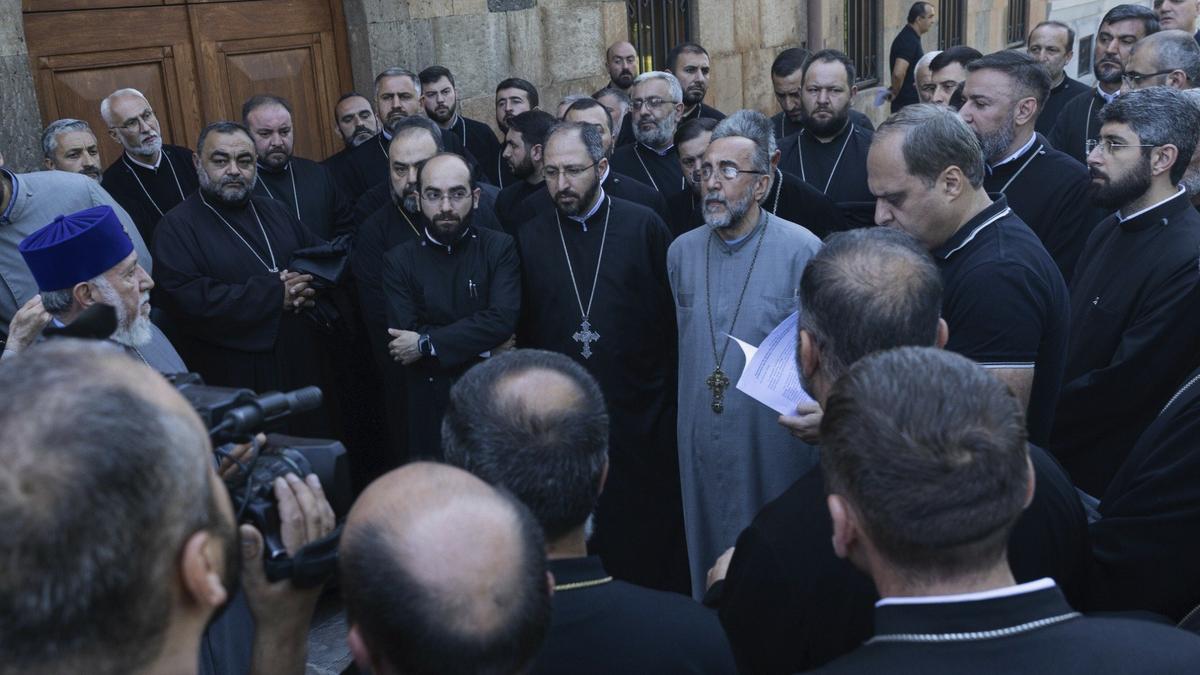Etchmiadzin at the Epicenter of Political Processes in Armenia

Armenian Prime Minister Nikol Pashinyan has escalated his
conflict with the Armenian Apostolic Church. In a recent speech, he accused the
Church leadership of holding an "anti-national" position, effectively
labeling Catholicos Karekin II as someone acting in the interests of the
political opposition.
Pashinyan called for mass protest gatherings in Etchmiadzin – the spiritual
capital of Armenia – a move unprecedented in the history of church-state
relations in the country.
In late June, the country’s security services attempted to
arrest Archbishop Mikael Adjapahyan directly on the grounds of the Etchmiadzin
Monastery. The raid ended in clashes with parishioners, who blocked the
monastery’s entrances. Under public pressure, the arrest turned into a court
case: the archbishop was temporarily released on bail, but the legal
proceedings continue.
The Armenian Church has traditionally played a key role in
shaping national identity and political legitimacy. The attack on the
Catholicos is not merely an ideological conflict but an attempt to weaken one
of the few independent centers of influence in the country.
By calling for protests at the walls of Etchmiadzin,
Pashinyan seeks to craft the image of a "people’s leader cleansing the
Church of corrupt elites". This is a political strategy aimed at seizing
the moral authority of the Church ahead of possible early elections. For the
first time since independence, Armenia risks facing a deep institutional rift
between the state and the Church.
It should be noted that Moscow has traditionally relied on
church structures as a loyal element of its influence in the region. The attack
on the Catholicos can be seen as a weakening of the pro-Russian lobby and a
shift towards the West. Furthermore, the intensifying conflict could lead to
mass unrest in religious centers and increased opposition protests, which are
already using the narrative of "insulting national sanctities".
Thus, this attack on the Church benefits Armenia’s leader by mobilizing his electoral base and completing his break with the "traditional elites". Moreover, weakening the conservative Church, traditionally tied to Russia, strengthens Yerevan’s pro-Western course.
 Latest news
Latest news Latest news
Latest newsGreece Plans to Exclude Turkiye from Future Defense Contracts
20.Feb.2026
U.S.-Based Mars Launches Major Investment Project in Kazakhstan
20.Feb.2026
Parliamentary Elections 2026 in Armenia as a Geopolitical Referendum
20.Feb.2026
Russia and Ukraine Fail to Reach Agreement in Geneva
19.Feb.2026
The South Caucasus in U.S. Foreign Policy: Implications of High-Level Visits for Russian and Chinese Regional Aspirations
18.Feb.2026
Ukraine Imposes Personal Sanctions on Belarusian President Alexander Lukashenko
18.Feb.2026
72% Against the Authorities: Economic Dissatisfaction Hits Record Levels in Turkiye
17.Feb.2026
Bulgaria Strengthens Defense: First American Stryker Vehicles Delivered
17.Feb.2026
Moscow Criticizes Plans to Build a U.S.-Backed Nuclear Power Plant in Armenia
16.Feb.2026
Washington expects Tbilisi to strengthen ties amid regional changes
15.Feb.2026

 28 Feb 2026
28 Feb 2026









